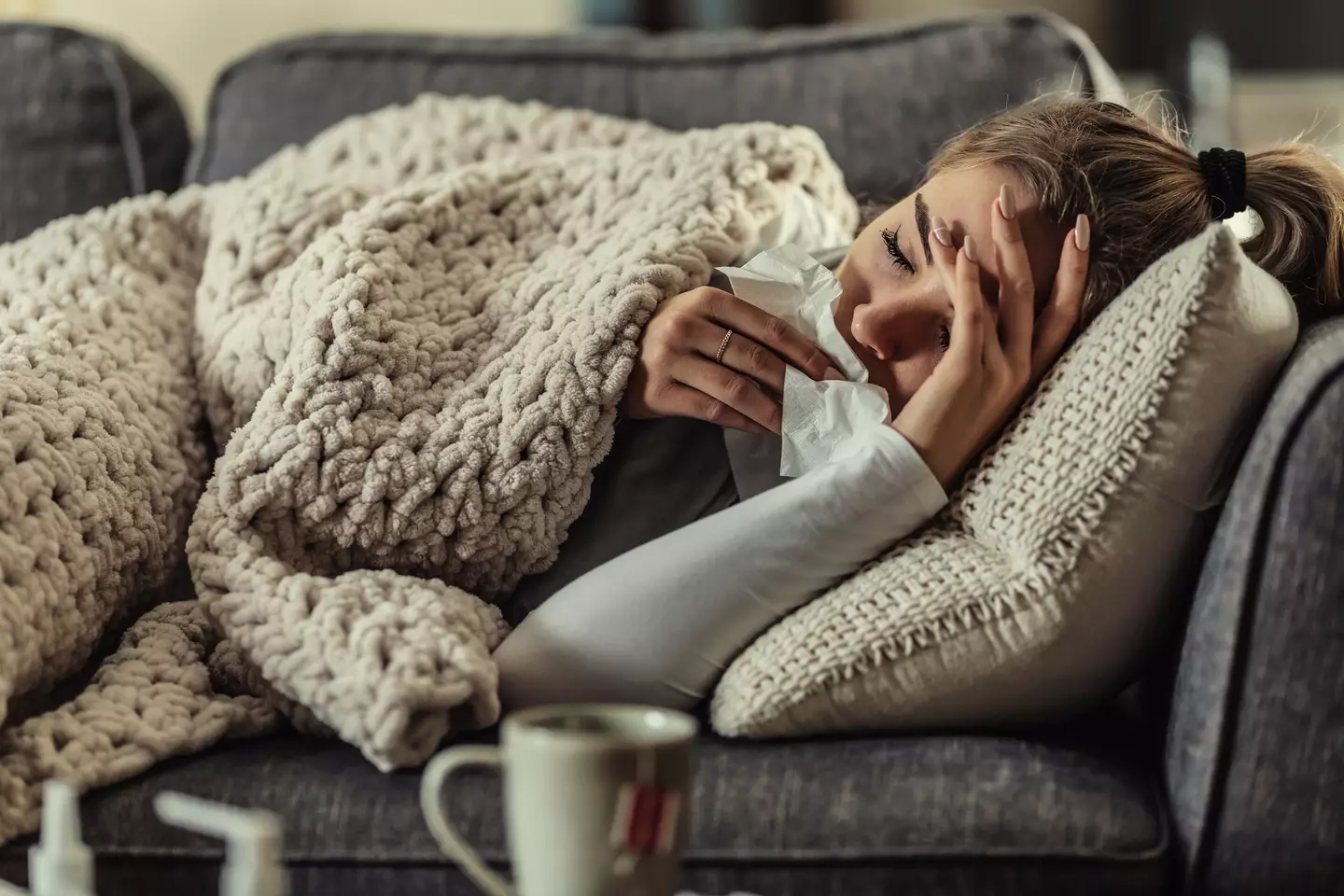
The UK Government has issued critical health advice to all Brits ahead of Christmas and New Year so that you can avoid the dreaded 'quad-demic' that is gathering pace.
Ahead of 25 December, the UK Health Security Agency (UKHSA) has issued a four point step to keeping yourself healthy for festivities so that you're not left in bed while everyone else celebrates.
It comes as the NHS is preparing for a 'quad-demic' of illness that could strain already stretched resources to breaking point with health bosses saying the public service is already 'busier than ever'.
Following on from a recent 'tripledemic' warning, it truly is a grim time to catch a bug or work in the NHS and have to deal with it. Here's everything you need to know.
Advert

What is the 'quad-demic'?
Talk of a 'quad-demic' is in relation to a spike in cases concerning coronavirus, influenza (flu), norovirus and respiratory syncytial virus (RSV).
Data from the UKHSA from December shows there were 747 laboratory reports of norovirus - aka the winter vomiting bug - between 18 November and 1 December this year. This was more than double the five-season average of 349 laboratory reports.
There is a belief in the UKHSA that there have been 105 outbreaks of norovirus across the country; a 27.4 percent increase on the last five year average.
Alongside this, the NHS has issued a stark warning regarding a 'tidal wave of flu hitting hospitals' with cases up 400 percent compared to 2023.

NHS warning
Professor Sir Stephen Powis, national medical director for the NHS, said that increased norovirus rates turned an existing 'tripledemic' of the other three illnesses in to a four-fold horror show.
"The NHS is busier than it has ever been before heading into winter, with flu and norovirus numbers in hospital rising sharply... we expect pressure to increase and there is a long winter ahead of us," Professor Powis said.
“For a while there have been warnings of a ‘tripledemic’ of Covid, flu and RSV this winter, but with rising cases of norovirus this could fast become a ‘quad-demic’ so it’s important that if you haven’t had your Covid or flu jab to follow the lead of millions of others and come forward and get protected as soon as possible.

Four simple steps to stay healthy
Ahead of Christmas, the UKHSA has advised of four steps you can take to remain well and stop infections from spreading over the festive period.
First of all, get vaccinated. It says: "Winter illnesses, including flu, COVID-19 and respiratory syncytial virus (RSV), are circulating widely, with emergency department attendances on the rise.
"We strongly encourage everyone eligible, especially the elderly, pregnant women, and those with pre-existing health conditions, to come forward for their vaccinations for these infections. Vaccination will help reduce your risk of getting seriously ill this Christmas and New Year."
Kids in school can get free flu vaccines on the NHS, which is delivered through a nasal spray. With schools set to break up for the year, it's worth checking locally for drop-in sessions known as 'catch-up clinics' organised by the NHS in your area.
The second step is to keep washing your hands, with the UKHSA saying this is essentially when stopping norovirus from spreading.
Regularly washing your hands with soap and warm water for 20 seconds and using bleach-based products to clean surfaces are effective ways to stop the spread of norovirus and other infections. Avoid preparing food for others if you have diarrhoea and or vomiting.

Up next, the UKHSA is advising you give occasions a miss if you've got a cough or sore throat combined with a raised temperature. By turning up, you're potentially putting vulnerable people at greater risk of catching something nasty.
If you've had norovirus symptoms, you should isolate from social or work situations for 48 hours.
Last up, it is advised you rest up and keep hydrated while keeping stocked up on over-the-counter medications.
"Antibiotics do not work against viruses, which are the usual cause of these conditions. Taking antibiotics when you don’t need them can contribute to antibiotic resistance, making it harder to treat bacterial infections in the future, so always listen to your doctor, nurse or pharmacist’s advice." the UKHSA says.
"Protect yourself against cold weather this winter. Maintain indoor temperatures of at least 18 degrees Celsius, particularly if you are older or live with elderly people, young children, or those with long-term health conditions. If you’re spending time outdoors, ensure you wear plenty of warm clothing."